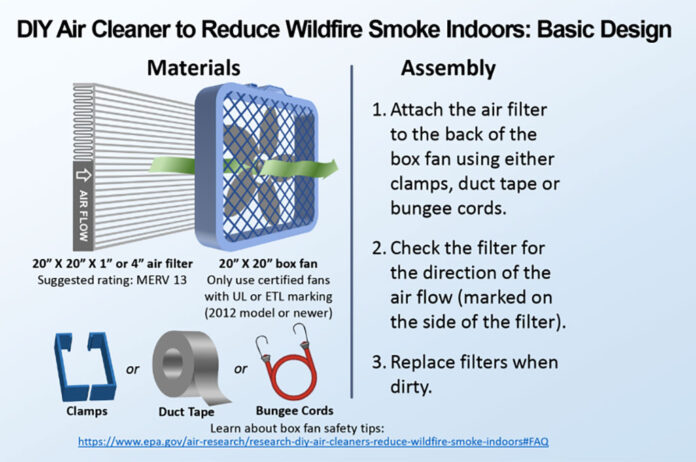Although we’re not surrounded by dense forests or wildlands here in Tigard, we’re no strangers to the impacts of wildfire season. In recent years, smoke from massive fires across the Pacific Northwest has drifted into the Valley, turning our blue skies gray and triggering days of hazardous air quality.
For those with respiratory conditions, older adults, children, and outdoor workers, these events are more than just an inconvenience — they pose serious health risks. The smoke is made up of a mix of gases and microscopic particles. Of greatest concern is fine particulate matter that can lodge deep in your lungs, causing symptoms ranging from coughing and eye irritation to more serious problems like asthma attacks and heart complications. Even short-term exposure can be harmful for those at risk, including children, seniors, those with lung issues, or outdoor workers.
How to Stay Informed: Monitoring Air Quality
Knowing when to act starts with knowing what’s in the air. Tigard residents have access to several tools to track smoke levels in real time:
Oregon DEQ Air Quality Index Map (aqi.oregon.gov) and www.airnow.gov both offer localized AQI (Air Quality Index) forecasts.
When the AQI reaches 101 or higher (orange or red zones), vulnerable individuals should avoid outdoor activities. When the AQI reaches 151 or higher, everyone should take precautions.
Creating a Clean Air Space at Home
One of the most effective ways to reduce smoke exposure is to create a clean indoor air space. Here’s how:
- Seal Your Home: Close windows, doors, and vents. Use weather stripping to reduce smoke infiltration.
- Use Air Purifiers: HEPA-filter air purifiers can dramatically improve indoor air quality. Place one in a central room and run it continuously during smoke events.
- Avoid Indoor Pollution: Don’t burn candles, fry food, vacuum, or smoke indoors — these activities can worsen air quality.
- DIY Filter Boxes: If a commercial purifier isn’t available, use a box fan combined with a filter (ideally a MERV 13 furnace filter) as a temporary solution (visit EPA’s guide for safe instructions at www.epa.gov/sciencematters/do-it-yourself-air-cleaners-making-cleaner-air-more-accessible).
Protecting Yourself When You Must Go Outside
Sometimes it’s unavoidable — you may need to leave home during smoky conditions. In those cases:
- Wear an N95 or KN95 mask. These are the only common masks that filter out smoke well.
- Avoid strenuous activity.
- Limit the time spent outdoors.
- Consider using sealed goggles if you experience eye irritation.
Preparing Now for Smoke Events
Wildfire smoke is becoming a more regular feature of Oregon summers. By preparing now, you’ll be ready this summer, as well as when the next haze settles over Tigard:
- Stock up on N95 masks and air filters
- Purchase a HEPA air purifier
- Sign up for Public Alerts through PublicAlerts.org
- Build a support network with neighbors to check in during high-risk days
Stay Safe, Stay Informed
Whether you’re at home, at work, or helping others as a CERT member, your actions during wildfire smoke events matter. Small steps like improving indoor air quality, wearing the right mask, and checking on your neighbors can have a big impact on health and safety in our community.
Let’s make sure everyone in Tigard can breathe easier — together.
Tigard CERT Inc. is a local non-profit organization allied with the City of Tigard that trains volunteers in basic emergency response and organizational skills following the Federal Emergency Management Agency model and guidelines for local Community Emergency Response Teams. For more information about Tigard CERT, please visit www.tigard-or.gov/your-government/departments/public-works/emergency-management.























